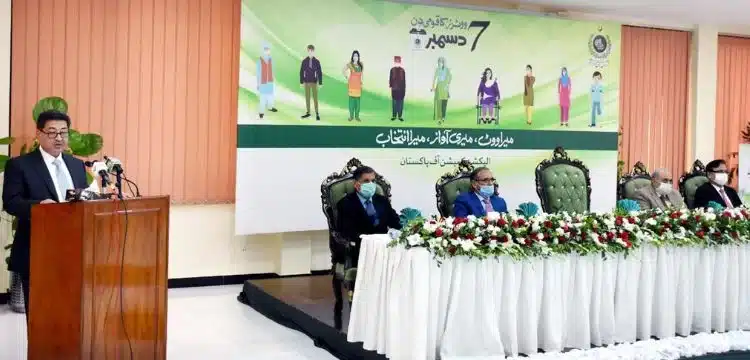[vc_row][vc_column][vc_column_text dp_text_size=”size-4″]The Pakistan Army has taken an important step in empowering the youth of South Waziristan by establishing the Al-Badr Information Technology Center. This effort intends to highlight the technological abilities of the region’s youngsters. The center not only provides basic education to young people but also comprehensive training in IT, office automation, e-commerce, freelancing, and digital programming.
Currently, the center has registered fifty-two students who are taking use of these educational opportunities. Both the young and elders of South Waziristan have expressed gratitude to the Pakistan Army for making technical training widely accessible.
According to GlobalData’s “Pakistan Defense Market 2023-2028,” Pakistan is through a revolutionary moment in its defense landscape, with increasing emphasis on modernizing its naval, air force, and army sectors. This strategic shift is underscored by an increase in defense spending and strategic partnerships, which represent the country’s commitment to resolving regional concerns in an increasingly complicated global environment.
Also Read: Interim IT Minister Aims for $20B IT Exports
Pakistan’s commitment to improving its defense capabilities is clear as it embarks on a broad modernization effort across the naval, air force, and army domains. This multifaceted strategy is motivated by rising geopolitical tensions and underlines Pakistan’s determination to maintain sovereignty, security, and resilience in the face of domestic and global challenges.
Pakistan’s military policy is evolving in response to changing regional dynamics, with a concentration on sophisticated naval vessels, combat aircraft, missile systems, and submarines. These accomplishments are consistent with the country’s aim of developing a strong defense infrastructure to face the challenges of the modern security landscape.
Pakistan’s security priorities are influenced by the ongoing tensions and territorial disputes between Pakistan and India, particularly in areas such as Kashmir and the Siachen Glacier. To navigate these challenges, a strong and technologically advanced defense posture is required.
Despite the impact of the COVID-19 outbreak and economic issues, Pakistan remains committed to spending money for both defense and economic progress. This difficult balance demonstrates the country’s aim to ensure regional stability while also promoting internal prosperity.
Pakistan’s aggressive modernization plans cover the navy, air force, and army sectors, demonstrating a comprehensive approach to national security. Collaborations with foreign partners, technological advances, and indigenous development projects demonstrate Pakistan’s determination to construct a self-sufficient and formidable defense infrastructure.
The position of China as a vital defense partner is critical in improving Pakistan’s defense capabilities. Collaborative projects, joint ventures, and technology exchange all contribute to Pakistan’s objective of boosting indigenous capabilities in order to effectively confront regional challenges.
In the face of a complicated geopolitical landscape, Pakistan’s commitment to modernization demonstrates its will to protect its interests and sustain regional stability. The confluence of modernization programs across the naval, air force, and army domains highlights Pakistan’s diversified approach to security, which reflects the country’s increasing role in the global arena.
In the face of different geopolitical concerns, Pakistan’s defense efforts go beyond numbers, covering a complete strategy to improve naval, air force, and army capabilities. The pursuit of complete modernisation demonstrates the country’s commitment to achieving regional stability while effectively resolving internal and foreign difficulties. Pakistan’s multi-domain approach strengthens its position as a dependable member in the ever-changing global security context.
As Pakistan advances, its drive to modernization reflects its constant commitment to adapting to changing global security demands. This comprehensive approach includes not just strengthening military capabilities but also empowering its young through projects such as the ‘Al-Badr IT center’ in South Waziristan. By combining these measures, Pakistan not only protects its territorial integrity but also fosters a technologically skilled generation that can contribute to the country’s socioeconomic progress. As regional and international circumstances shift, Pakistan’s diversified approach positions it as a consistent contributor to global peace, security, and growth.[/vc_column_text][/vc_column][/vc_row]











